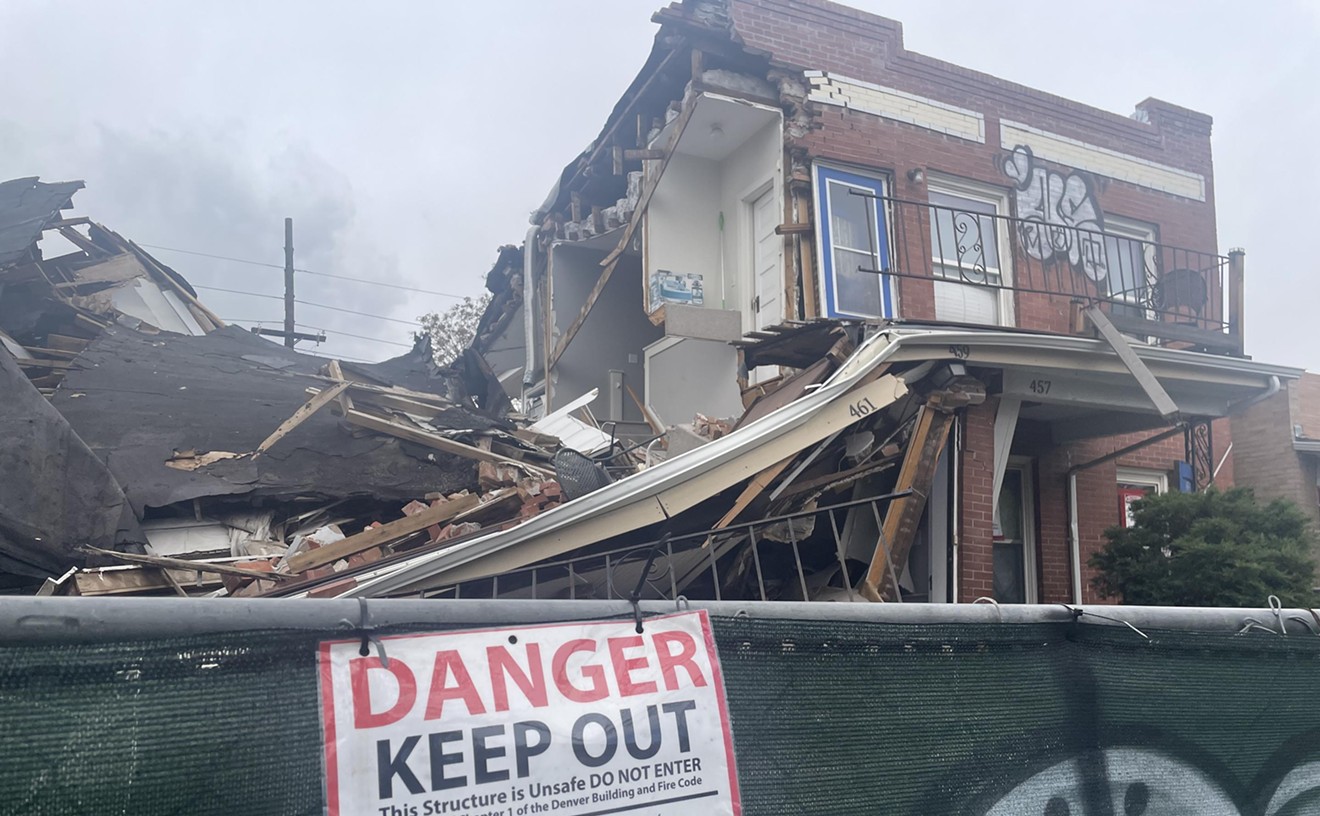A teacher tells us about watching a fellow staffer guide a DPS administrative type from classroom to classroom a while back and taking the temps in each to prove that they'd all hit 95 degrees. Turns out there was a mechanical problem with the air conditioning, but it took the better part of two days for it to be addressed.
At a school without central air, another teacher notes that classrooms on upper floors are so sweltering on warm days that instructors keep all the windows closed and the blinds lowered in an effort to prevent the spaces from being super-heated. When that doesn't work, they can call for box fans, but those devices merely circulate the steamy air and create a distracting noise teachers must project over in an attempt to reach students that the heat is rapidly putting to sleep.
"How can we expect them to learn when they're melting?" the teacher asks.
The person at Denver Public Schools tasked with tackling situations like these is Trena Marsal (formerly Trena Deane), the district's executive director of facilities management. According to Marsal, approximately 170 schools in the system have central air conditioning, while 78 do not — but she stresses that the latter facilities aren't simply being left to broil when temperatures near triple digits.
"Through the bond program, we have heat mitigation efforts in process at those buildings," she says, "and there are efforts to reduce that number by using classroom-level cooling units in rooms. They're not a window unit and they're not a fan, because they actually provide cooling. They're not just rotating the air."
For the 170 buildings with central heating, air conditioning and digital temperature controls, DPS uses International Energy Conservation Code guidelines promoted by organizations such as the American Society of Heating, Refrigerating and Air-Conditioning Engineers: 75 degrees when cooling is needed and 70 degrees' worth of heat during colder months. "Those help us meet our sustainability goals and make sure we're creating a comfortable environment," Marsal allows.
As for why personnel at individual schools aren't allowed to adjust temperatures, she concedes that saving money is part of the equation: "We're cognizant of our energy costs." But more important, in her view, is that a centralized approach to temperature control is considered a best practice for energy conservation within the education industry.
She adds, "It's also a question of equity. We don't want the perception that we're allowing this building to do one thing versus letting that building do another. We treat all the buildings the same, whether they're a traditional school or a charter school."
Each school in the system has a facilities manager tasked with monitoring classroom temperatures, among other things, and when there's a problem or complaint, Marsal says, "they'll contact us and we'll immediately dispatch a technician over to that building. When you have seventy buildings where you might have high heat conditions, we might respond a little slower, but we can typically dispatch a technician within a couple of hours, depending on what's going on."

A classroom cooling unit of the type that's being put in classrooms at some Denver Public School facilities that don't have central air conditioning.
In cases like the 95-degree temps noted in the first teacher account above, she goes on, employees "can get into contact with their facilities manager, and they can put in a work order that goes directly into our system and flows over into what we call our first call center. The people there review the order to make sure we have the proper information and if it's an emergency situation — a situation that may impact the school environment, like a classroom full of kids. That way, we know how quickly we need to respond to the request."
Marsal emphasizes that maintaining a pleasant temperature for students and teachers is the main goal, and she says she hasn't heard about any reports of complaints connected to our recent temperature spike.
In the meantime, she adds, "we have staff through our sustainability department that will go out and meet with teachers or students to try and educate them around sustainability and energy conservation. And one of our goals in the future is to have little teams at each school that can help us with that. It could be students that look out for energy efficiency and best practices."
Like making sure students aren't melting.













